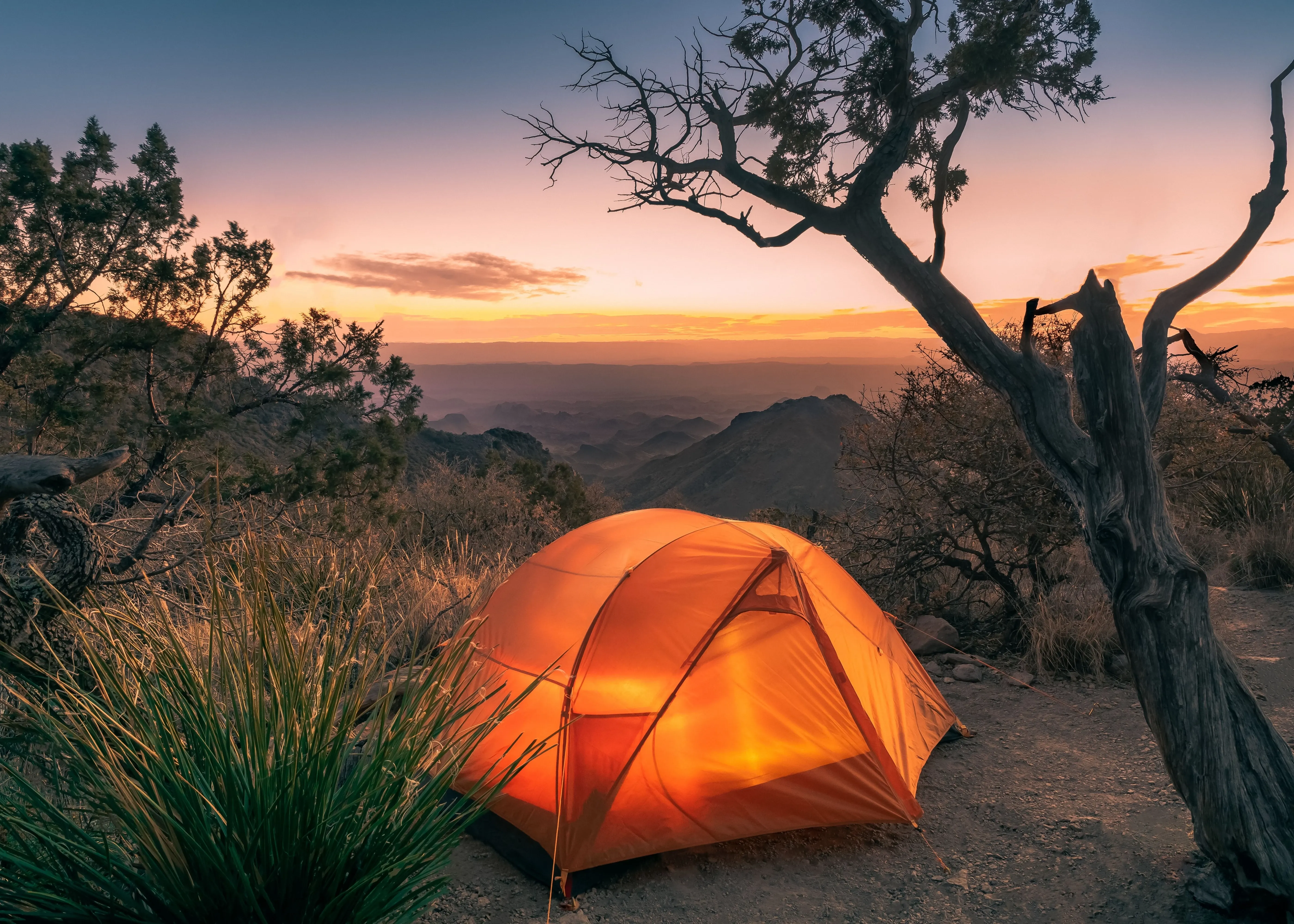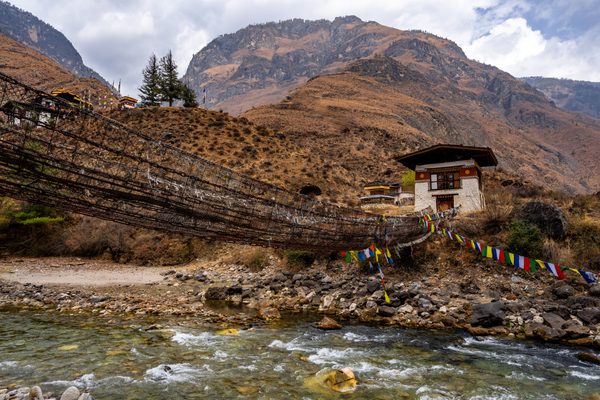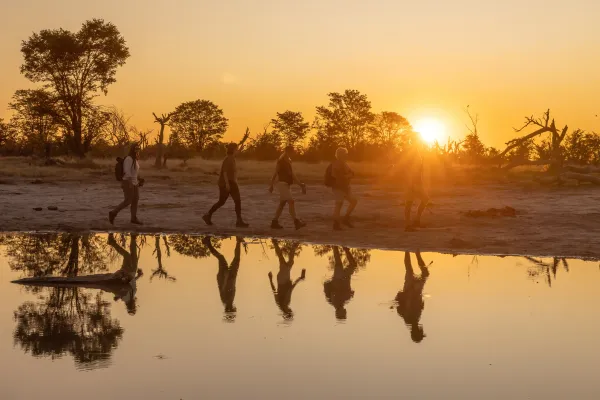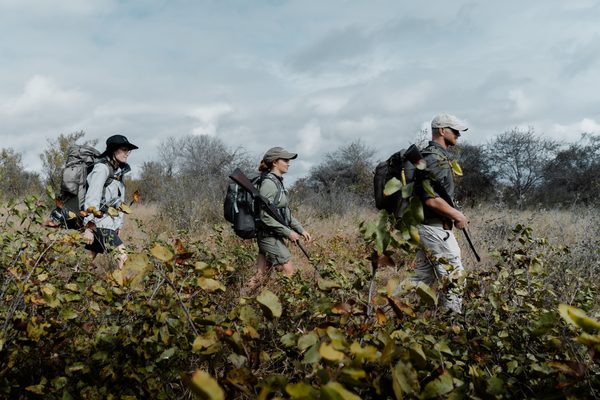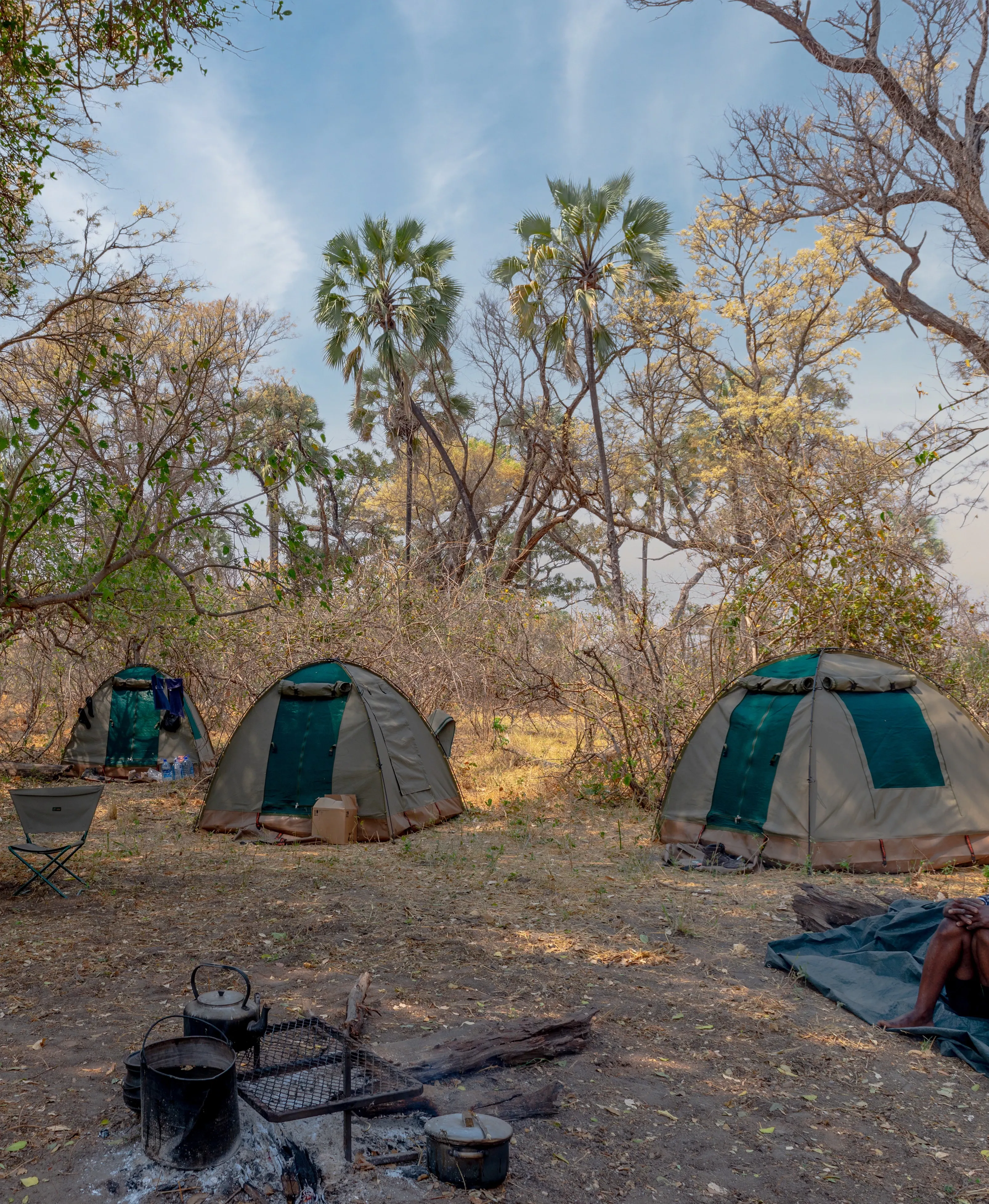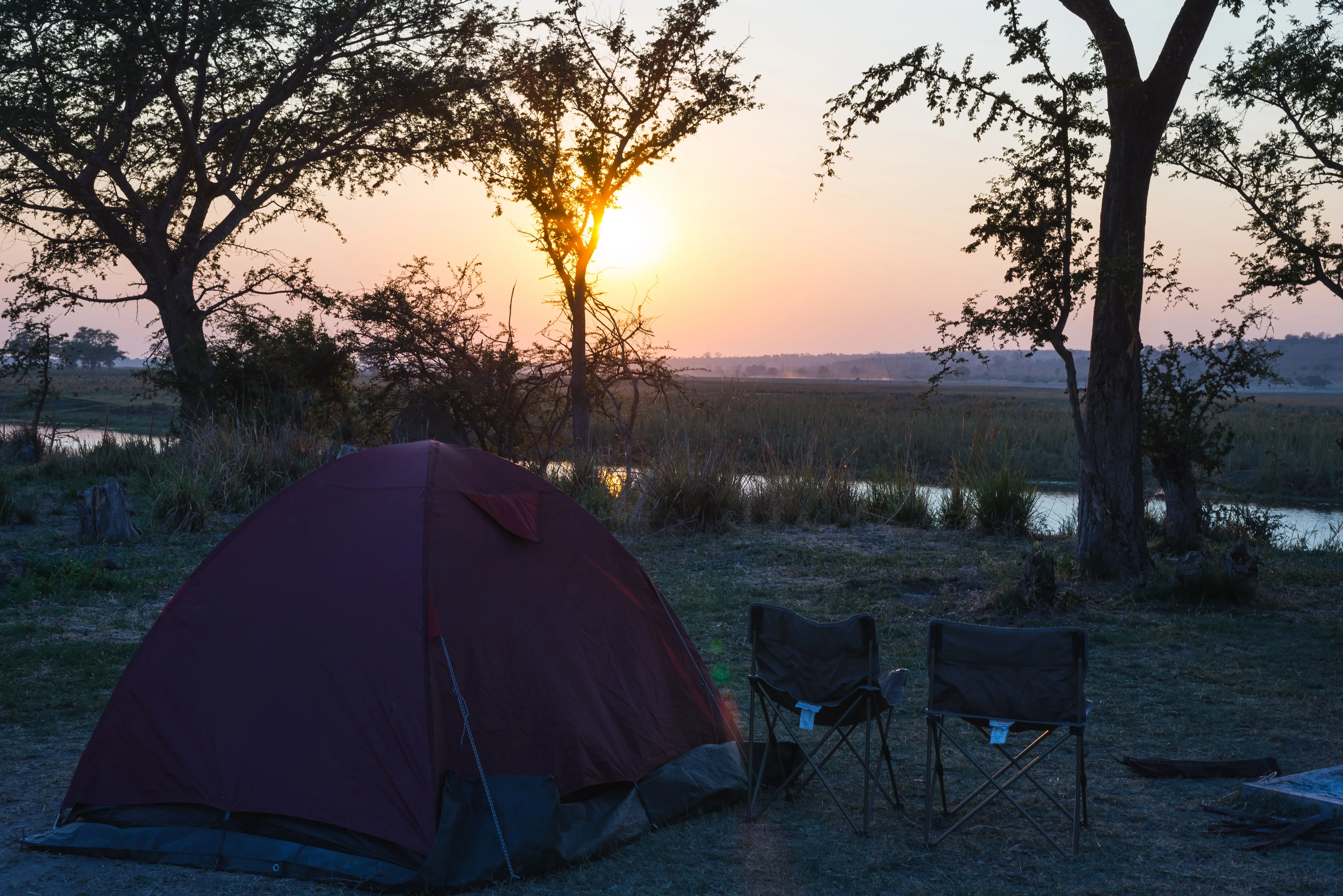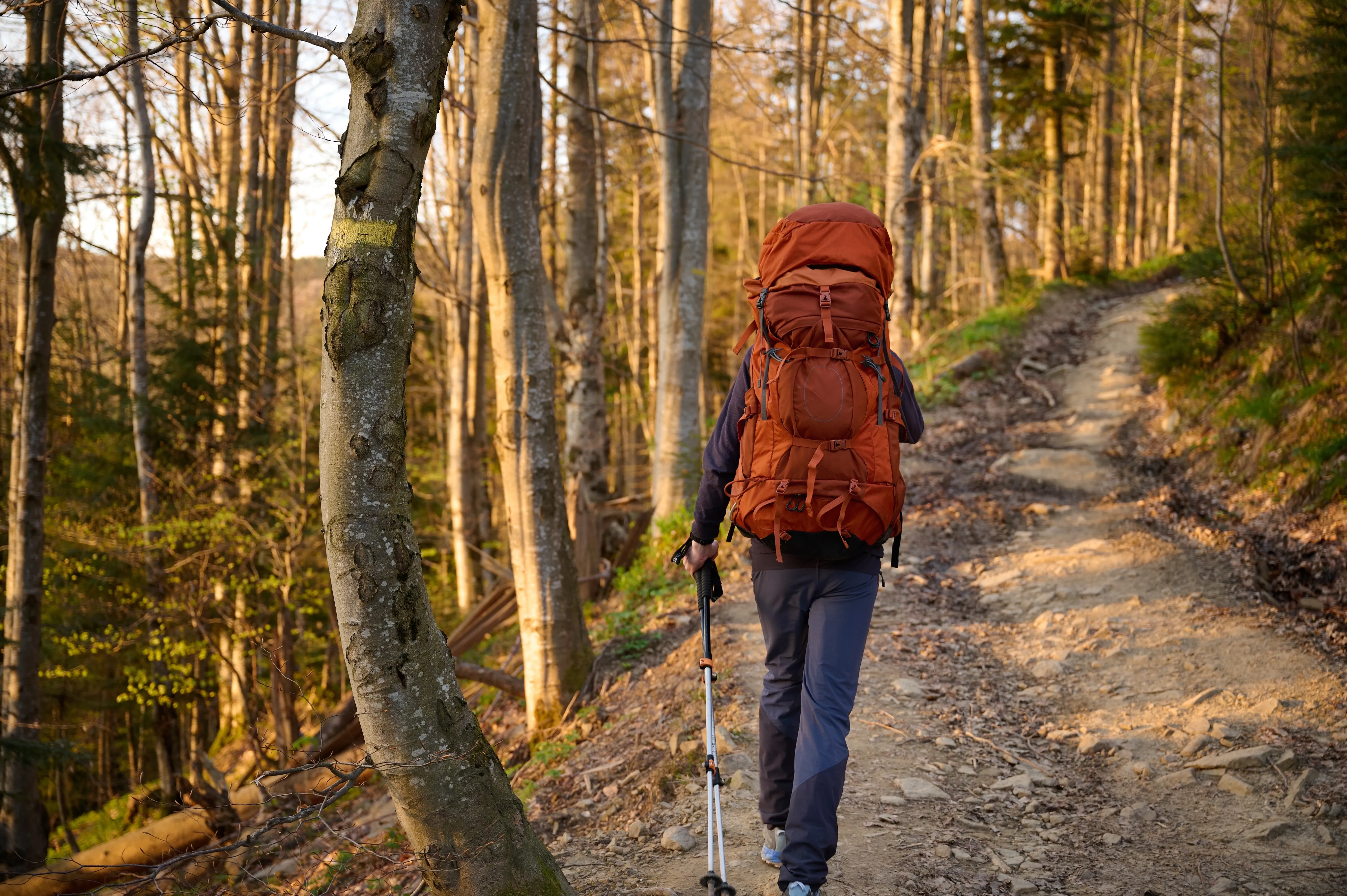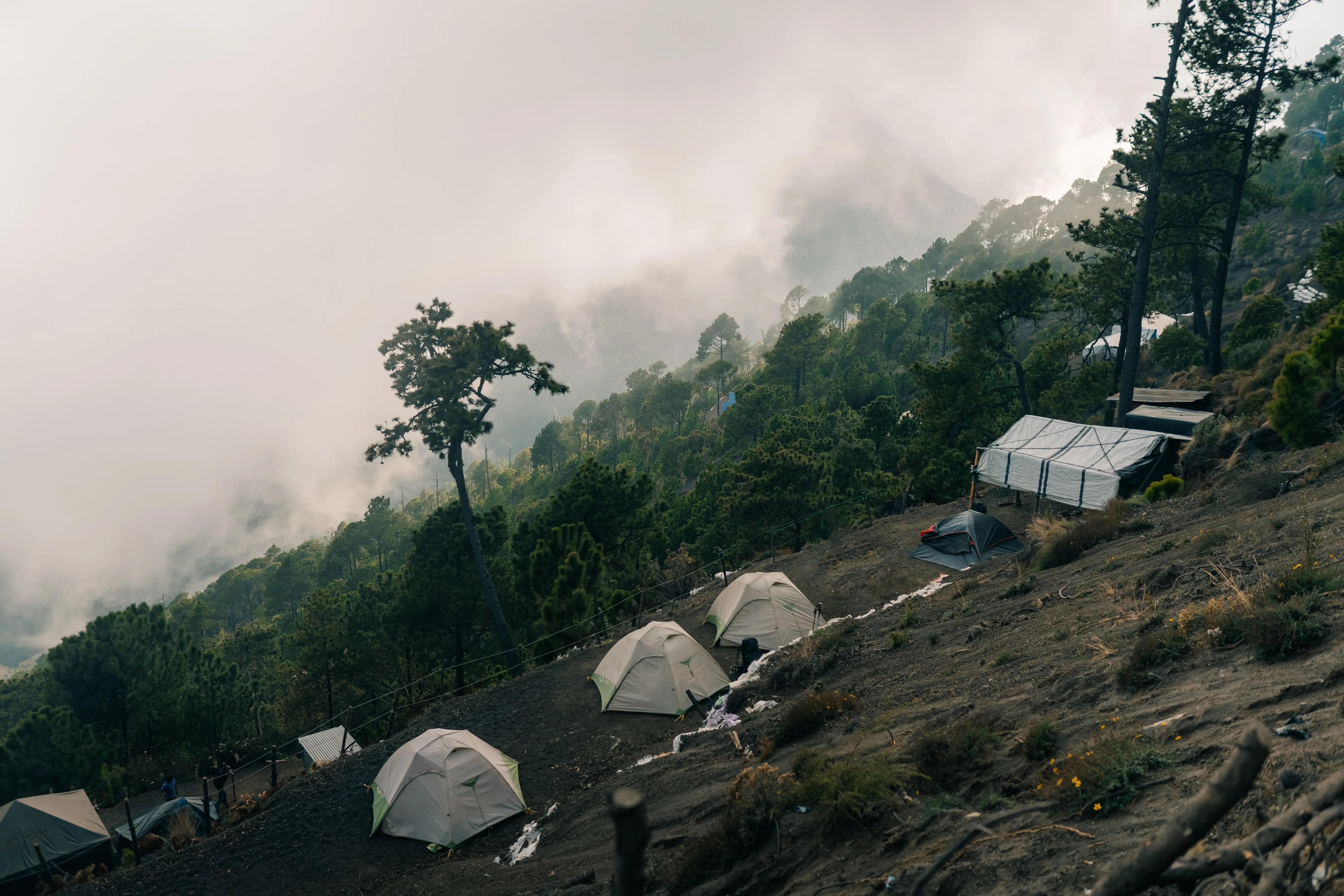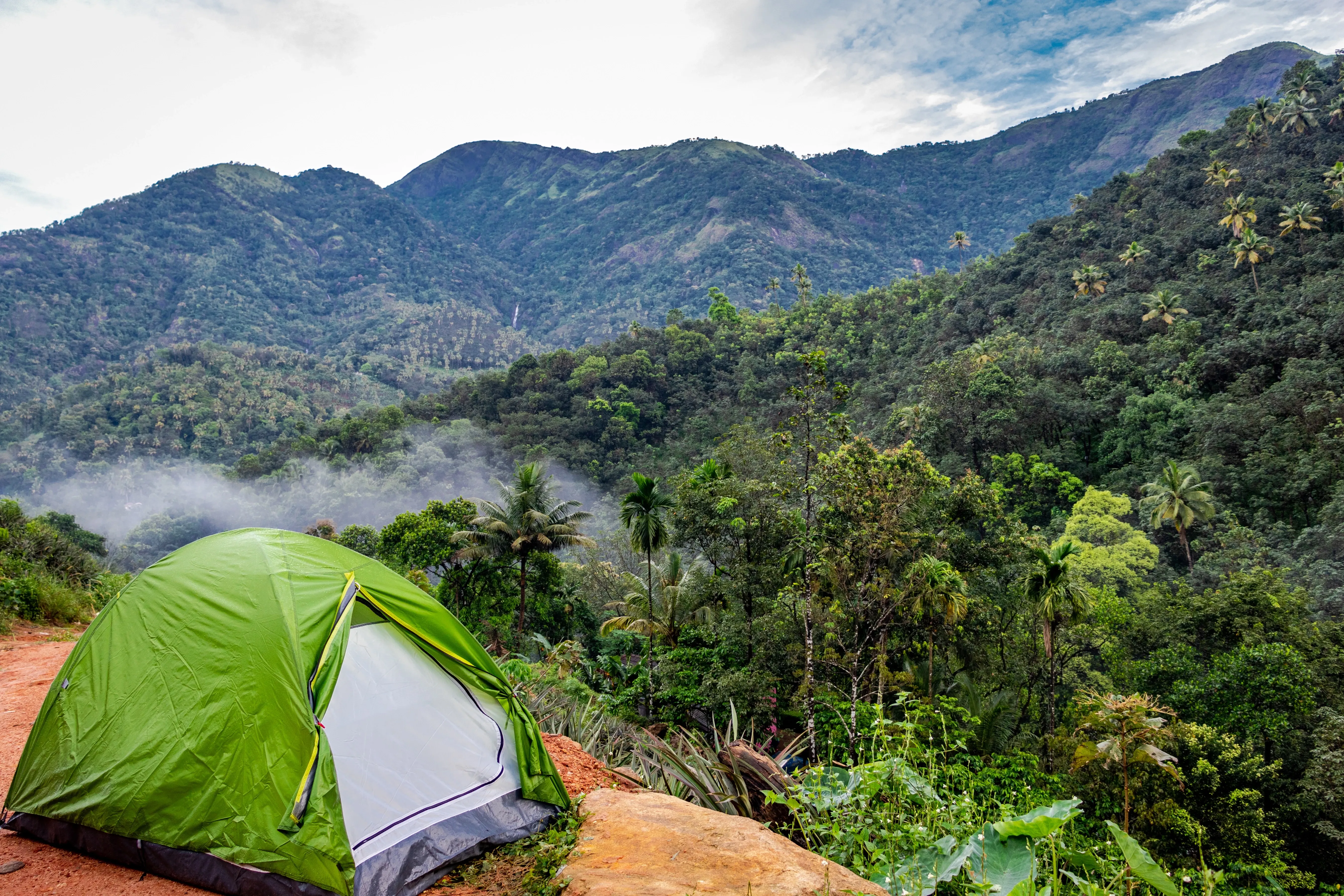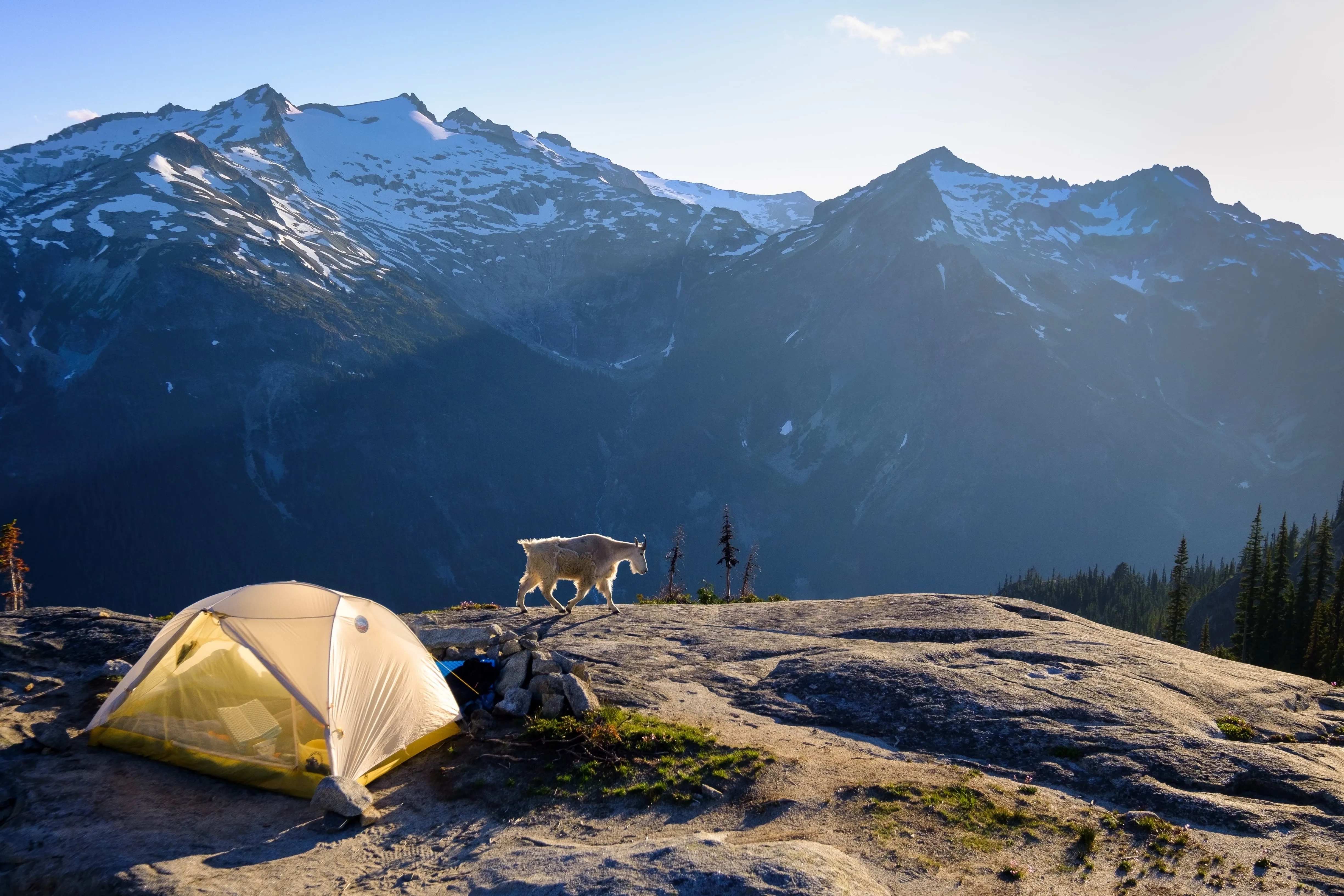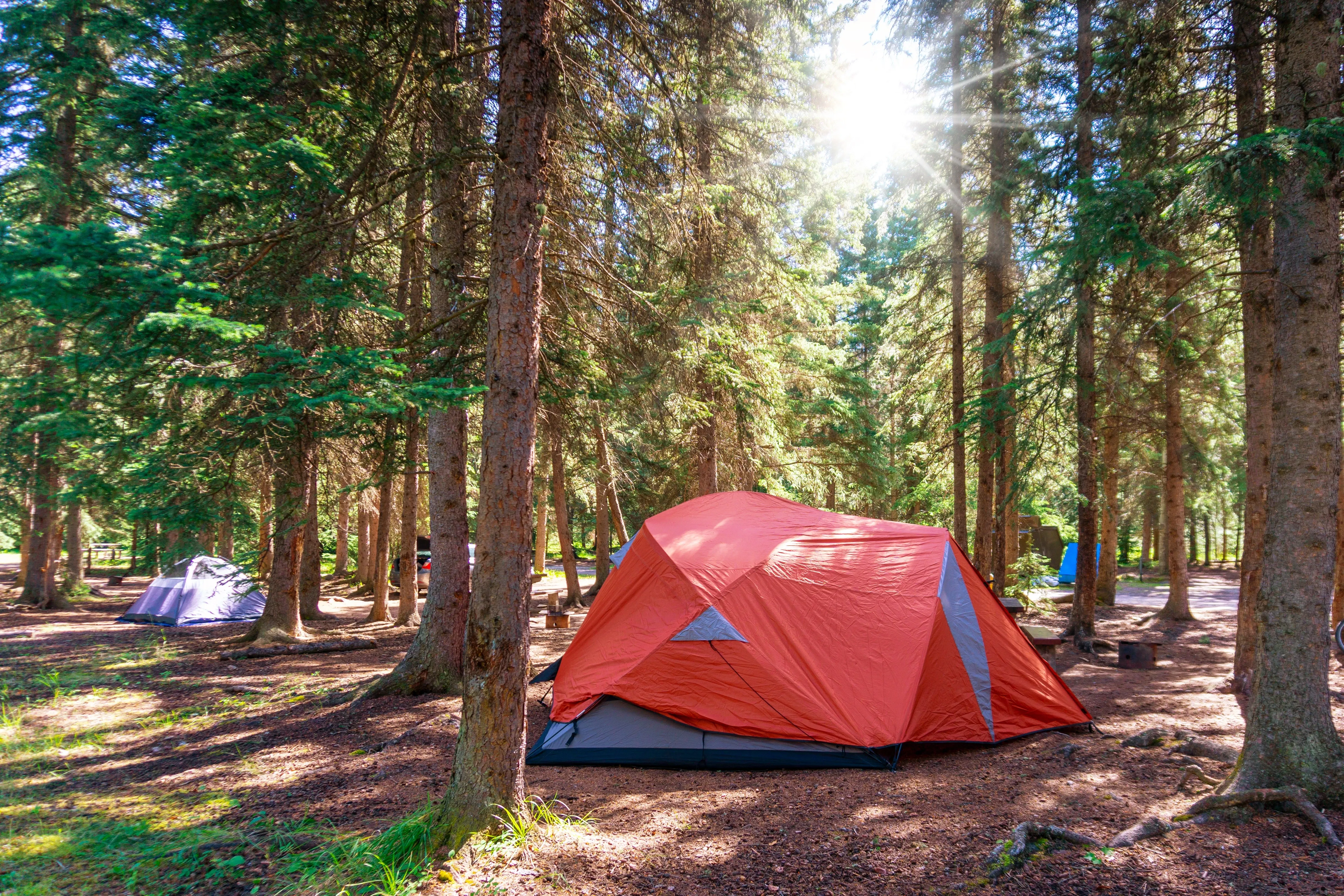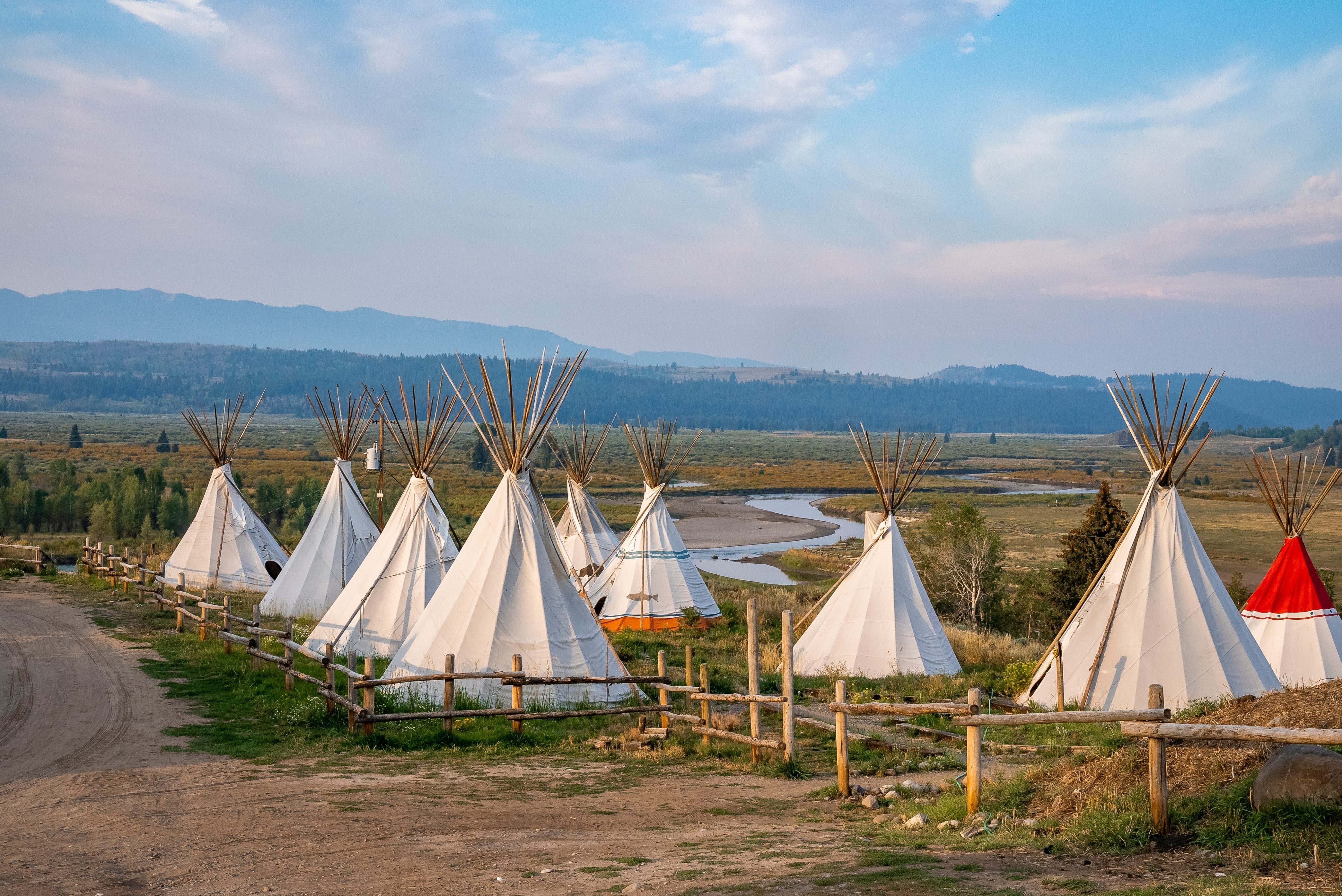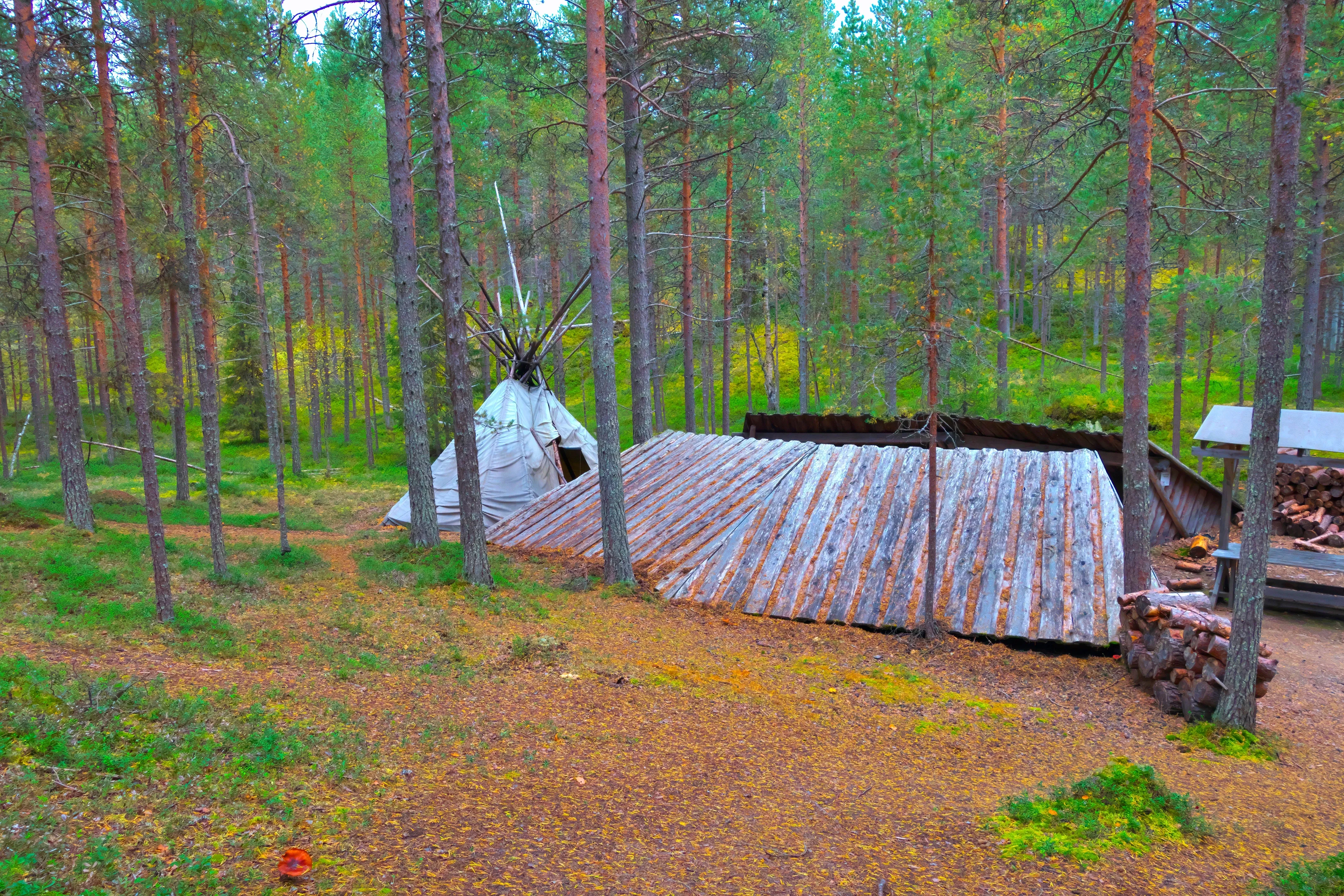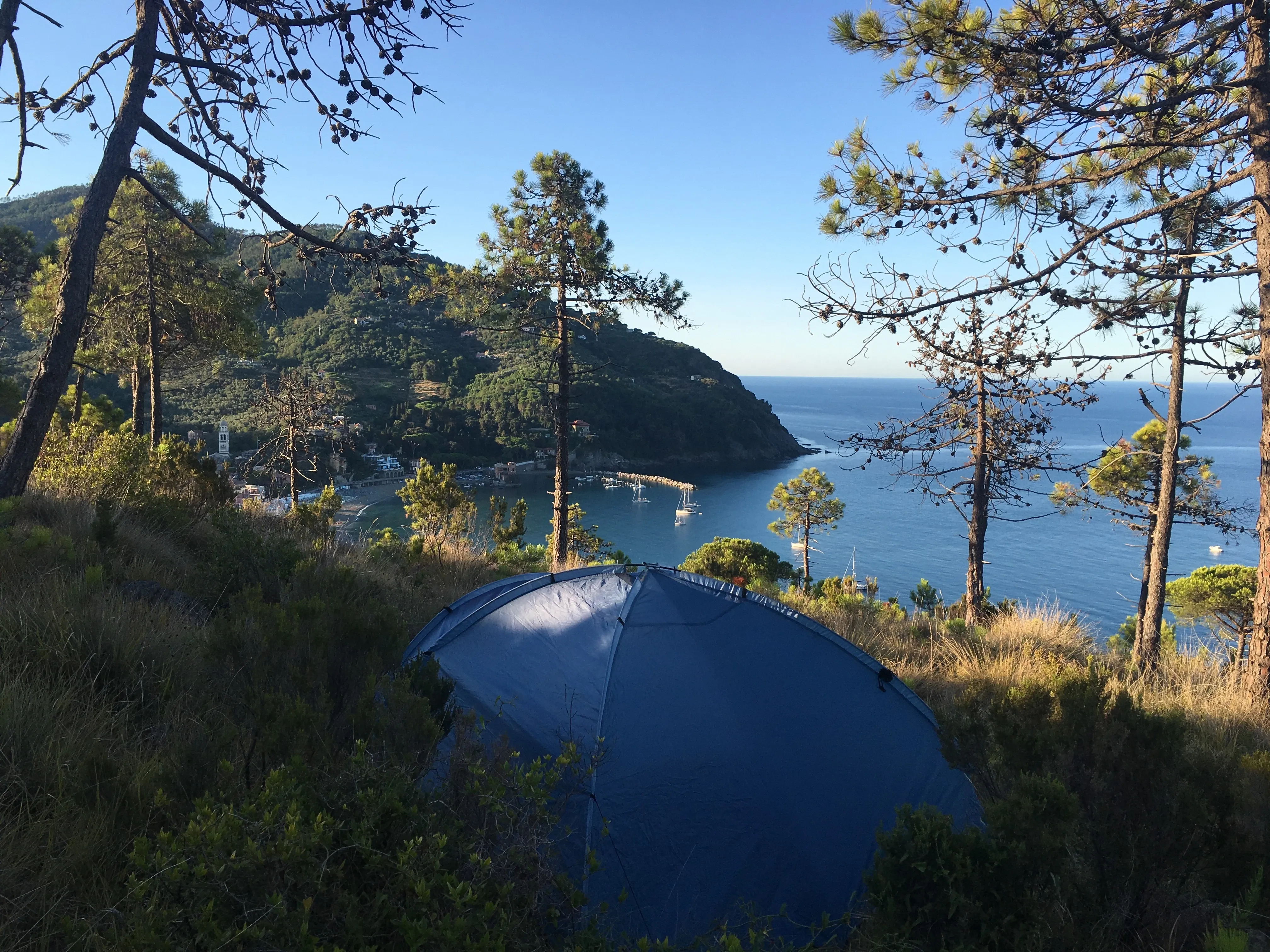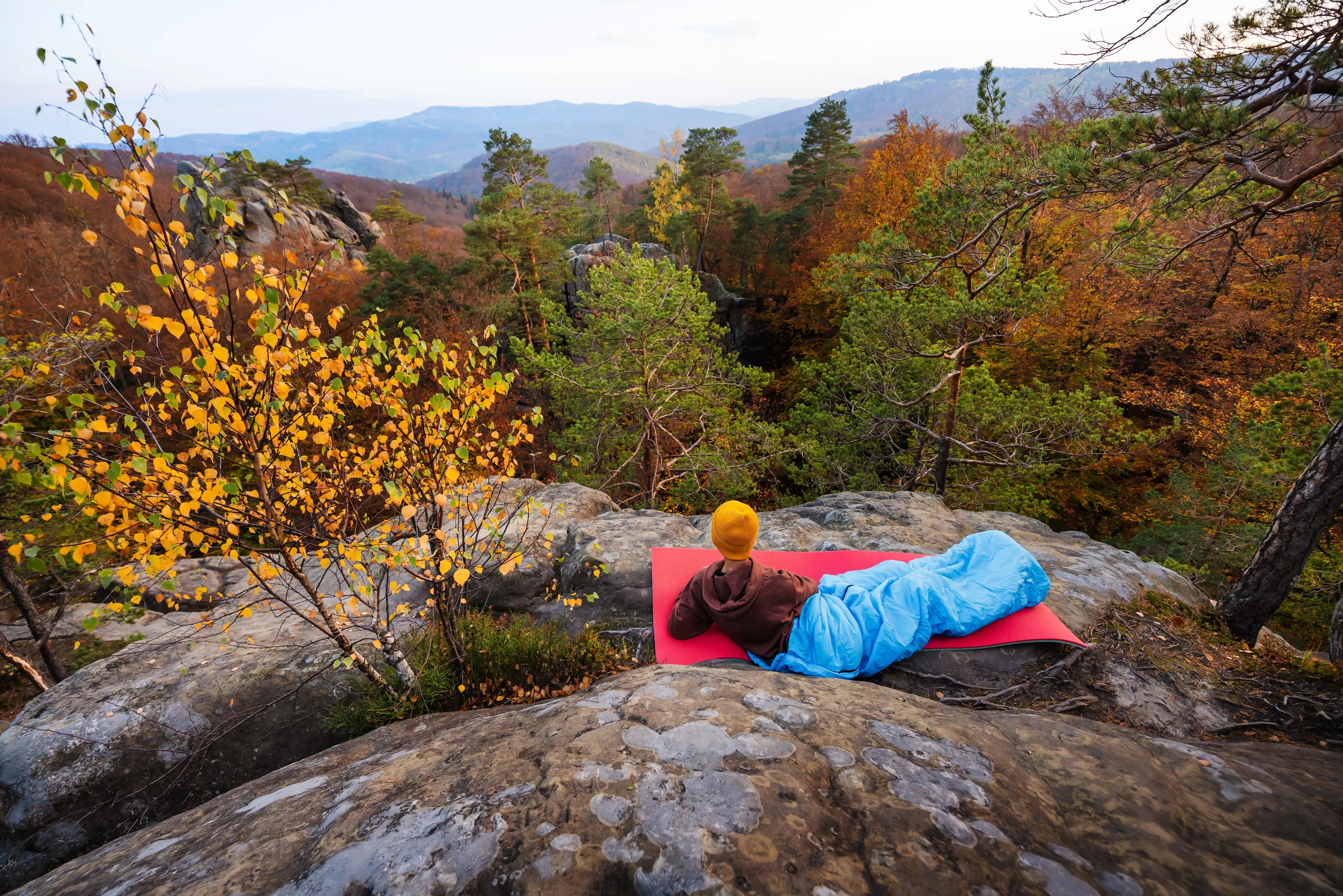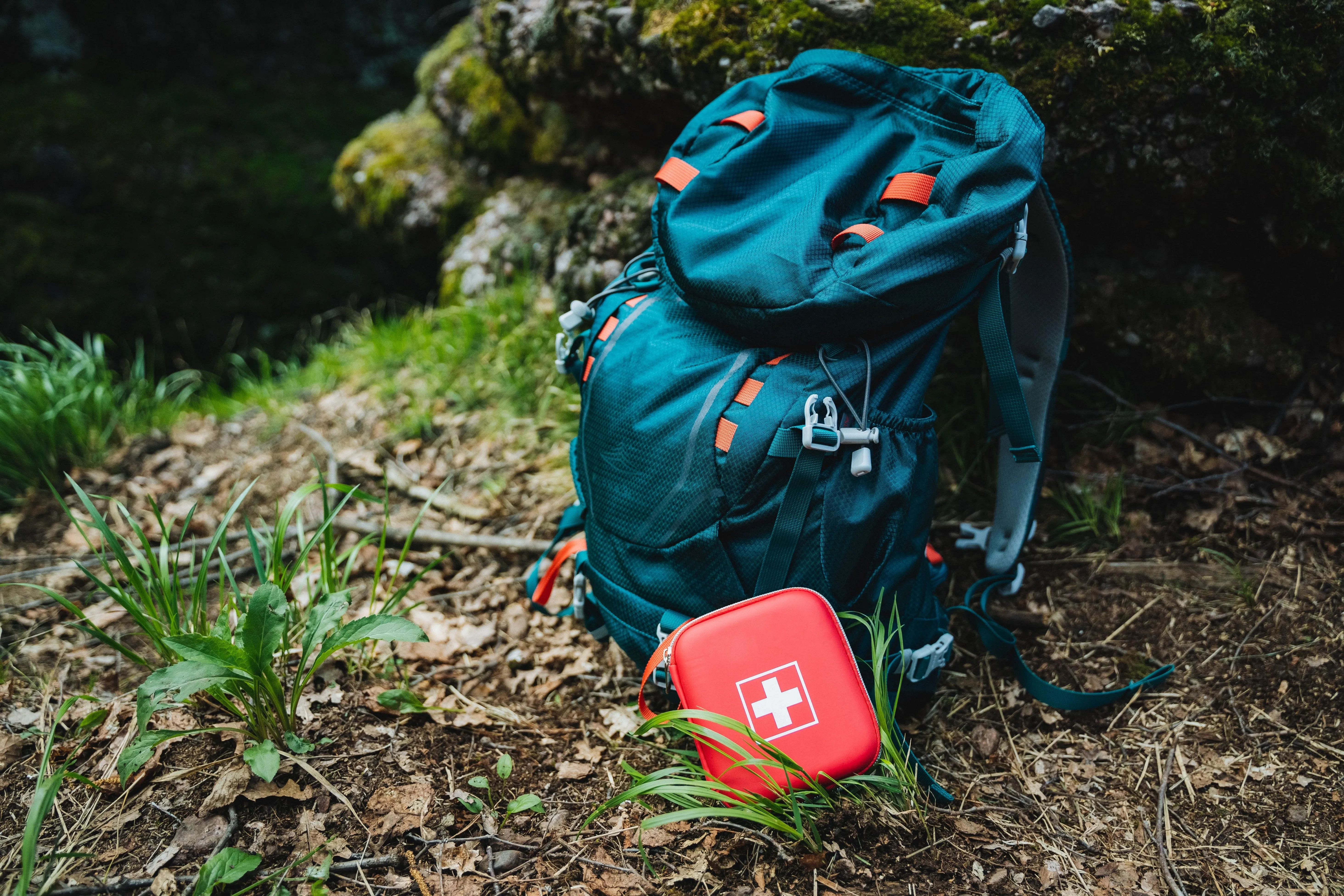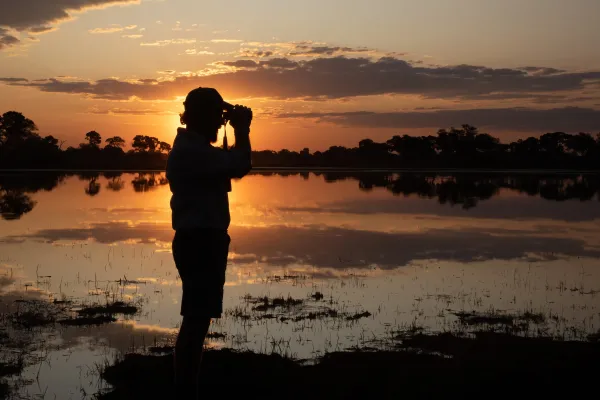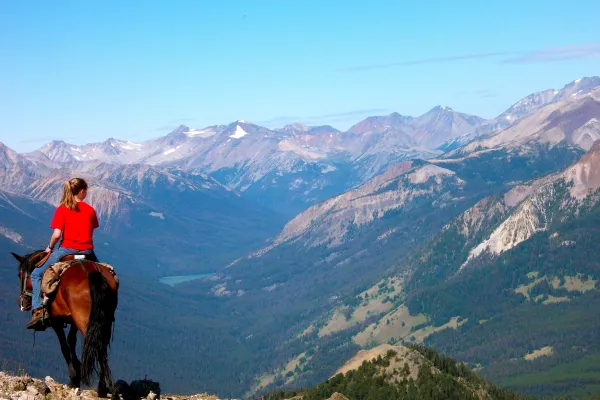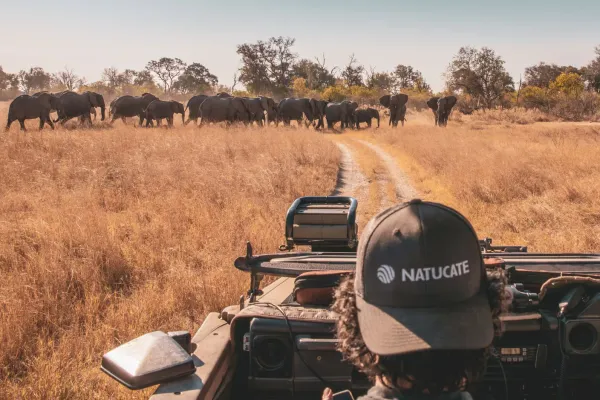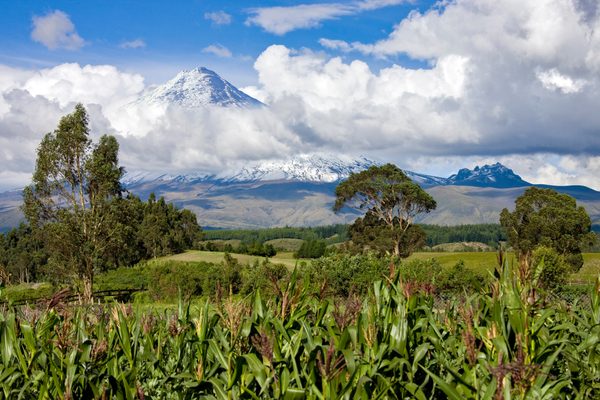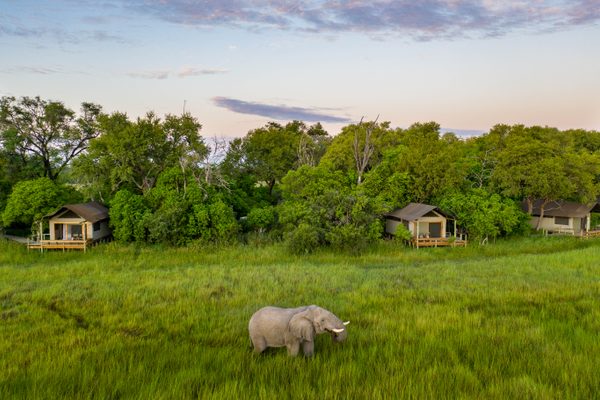Conscious Travel: Wilderness Camping
Wilderness camping is more than just a getaway; it’s an immersive journey into the heart of nature that invites adventurers to step away from the chaos of everyday life and reconnect with the wild.
Picture yourself surrounded by towering trees, the sounds of a flowing river nearby, and the crisp, fresh air invigorating your senses. This form of camping allows individuals to experience the beauty and tranquillity of remote landscapes, offering a unique blend of adventure, relaxation, and personal discovery.
As more people seek refuge from the digital world, wilderness camping presents an opportunity to unplug, rejuvenate, and appreciate the simple joys of life in the great outdoors. Whether you’re a seasoned outdoor enthusiast or a curious beginner, this article will guide you through the essentials of wilderness camping, from preparation and essential gear to the unforgettable experiences that await in nature's embrace.
Join us as we explore the enchanting world of wilderness camping and discover how it can transform your perspective on nature and adventure.
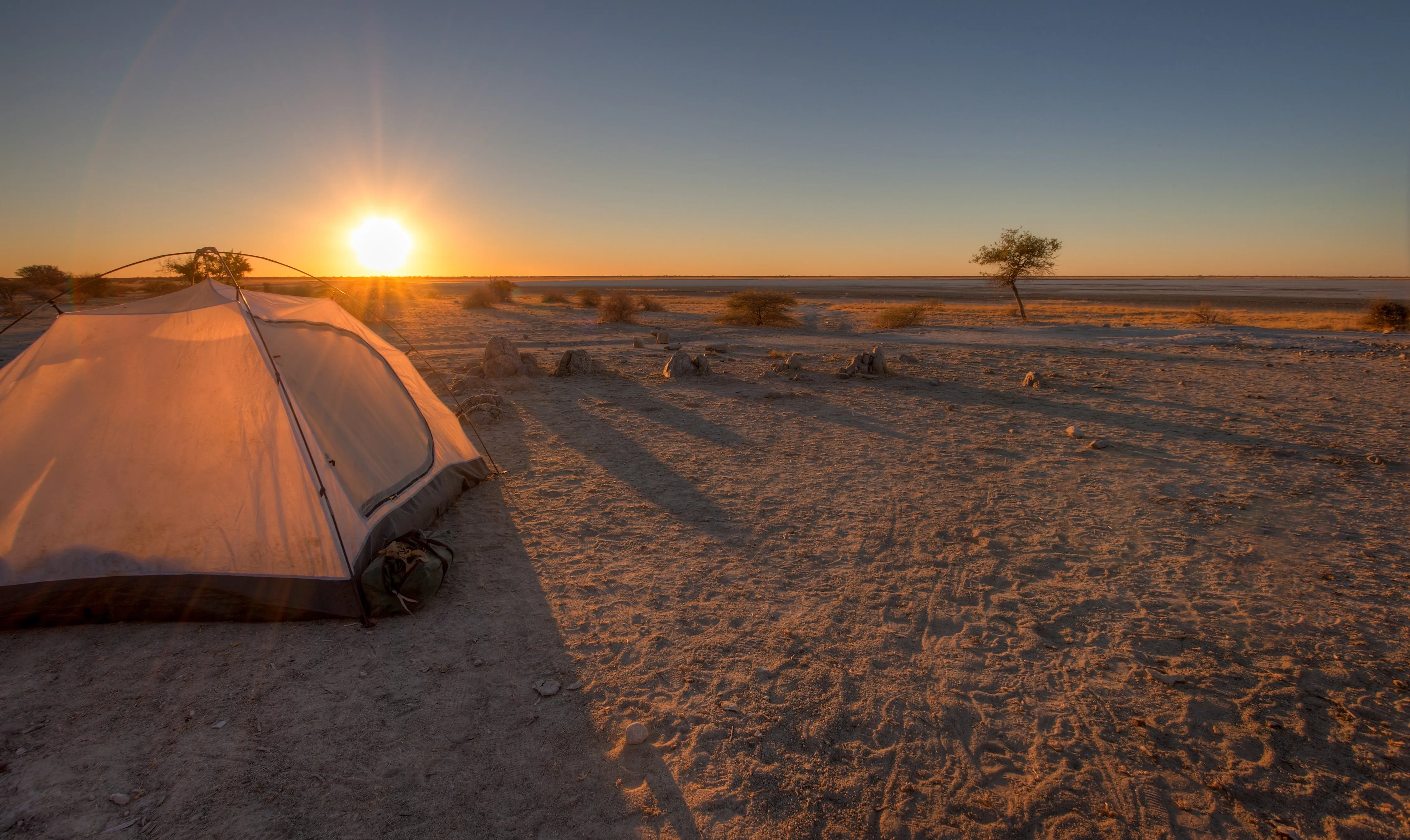
Wilderness camping - a brief introduction
Wilderness camping, often referred to as backcountry camping, is an exhilarating form of outdoor adventure that invites you to explore the natural world off the beaten path. This experience takes you away from the conveniences of modern life and into remote, unspoiled landscapes where you can camp off the grid. Here, you can fully immerse yourself in the sights and sounds of nature, surrounded by forests, mountains, lakes, and wildlife.
It is important to note that camping in the wilderness is not the same as wild camping; while wilderness camping often takes place in designated areas, wild camping refers to staying outside of official campsites, often without permission and lacking access to basic facilities. Wild camping is not allowed everywhere and can be subject to rules and restrictions.
By embracing wilderness camping, you embark on a journey that encourages you to become a conscious explorer. This means not only enjoying the beauty of your surroundings but also understanding and respecting the environment. It involves practicing responsible travel habits, such as minimizing your impact on the land, adhering to Leave No Trace principles, and being mindful of local wildlife and ecosystems.
Wilderness camping allows you to disconnect from technology and the hustle of daily life, offering a chance for personal reflection and rejuvenation. You’ll develop essential skills, such as navigation and shelter building, while enjoying activities like cooking over an open fire and stargazing. Whether you're seeking solitude, adventure, or a deeper connection with the earth, wilderness camping provides a transformative experience that fosters a lasting appreciation for the great outdoors.
»Keep close to nature’s heart.. and break away, once in a while, and climb a mountain or spend a week in the woods. Wash your spirit clean«
Combining solitude and team building in the wilderness
Whether you’re looking for a peaceful escape to reconnect with yourself or prefer the camaraderie of a shared adventure, wilderness camping can accommodate both experiences. It is the ideal activity for individuals seeking either personal reflection and/or a group cohesion.
Mostly nestled in remote, serene environments, this outdoor activity allows campers to disconnect from the chaos of everyday life while fostering deeper connections with nature, the environment, themselves and those around them.
#1 The power of solitude
For many, wilderness camping is an opportunity to embrace solitude. Being surrounded by nature—whether it’s the rustling of leaves, the sound of a flowing river, or the quiet hum of wildlife—provides a space for introspection and relaxation.
In these tranquil settings, individuals can reflect on their thoughts, recharge their mental batteries, and gain clarity away from the distractions of modern life. This solitude is not about isolation; rather, it’s about finding peace and reconnecting with oneself. It encourages campers to embrace their inner thoughts and feelings, ultimately leading to personal growth and self-discovery.
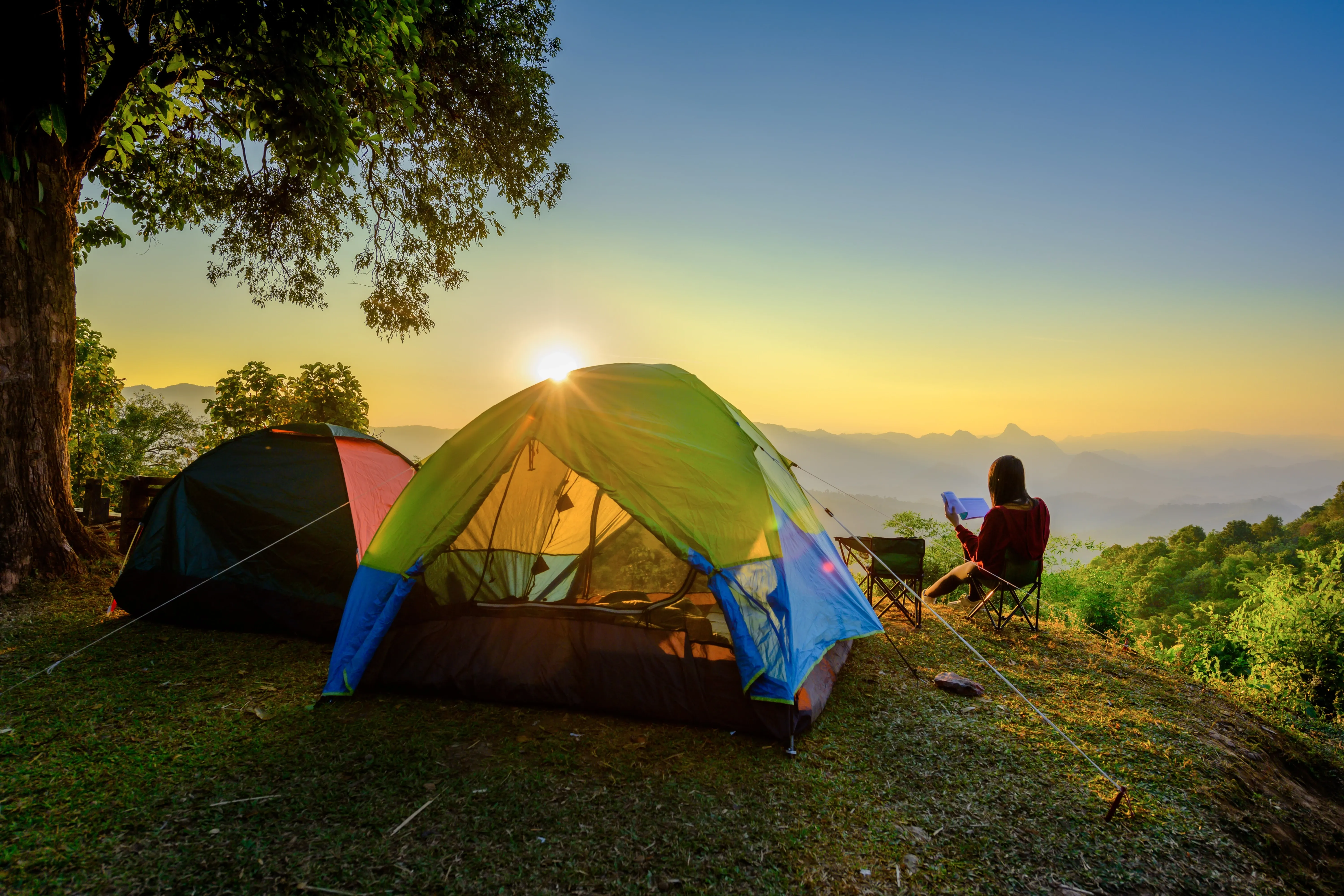
#2 Team building in nature
On the other hand, remote camping experiences also serve as an excellent platform for groups and team building. When camping with a group- whether it’s friends, family, colleagues, or like-minded strangers - the shared experiences of exploring the great outdoors and encountering remarkable wildlife create bonds that can last a lifetime.
Setting up a campsite, preparing meals over an open fire, and tackling trails together foster a sense of camaraderie. Spending time in this environment together without distractions allows group members to develop stronger relationships and a deeper understanding of each other.
As they collaborate to solve problems and achieve common goals, they create lasting memories that enhance their connection. The laughter shared around a campfire and the challenges overcome on a hike contribute to a sense of unity that can enrich both personal and professional ties.
#3 Finding balance
The allure of wilderness camping stems from its unique ability to harmonize solitude with group interaction. Campers can savour moments of personal reflection while also participating in collaborative activities, such as gathering firewood, encountering wildlife, or simply enjoying conversations with one another.
The time spent immersed in nature offers a refreshing escape from everyday routines, enabling you to return to your daily life feeling rejuvenated and more connected.
»Two roads diverge in a wood, and I - I took the one less travelled by, and that has made all the difference«
Wilderness camping - Experiencing nature up close
Wilderness camping offers a remarkable opportunity to experience nature intimately, immersing yourself in the heart of the wild.
1) Connect with the environment
This remote camping experience allows you to embark on adventure camping, where the remoteness of the landscape enhances your connection to the environment. You can choose to camp in the wild by undertaking a multi-day wilderness trail on foot, carrying all your camping equipment, or opt for a base camp in a remote wilderness area where you set up your tent.
With your gear stationed at the base camp, you have the freedom to explore the surrounding area without the burden of carrying everything with you. Regardless of your choice, each moment spent in nature becomes an enthralling journey that invites you to break out of your comfort zone and embrace the beauty around you.
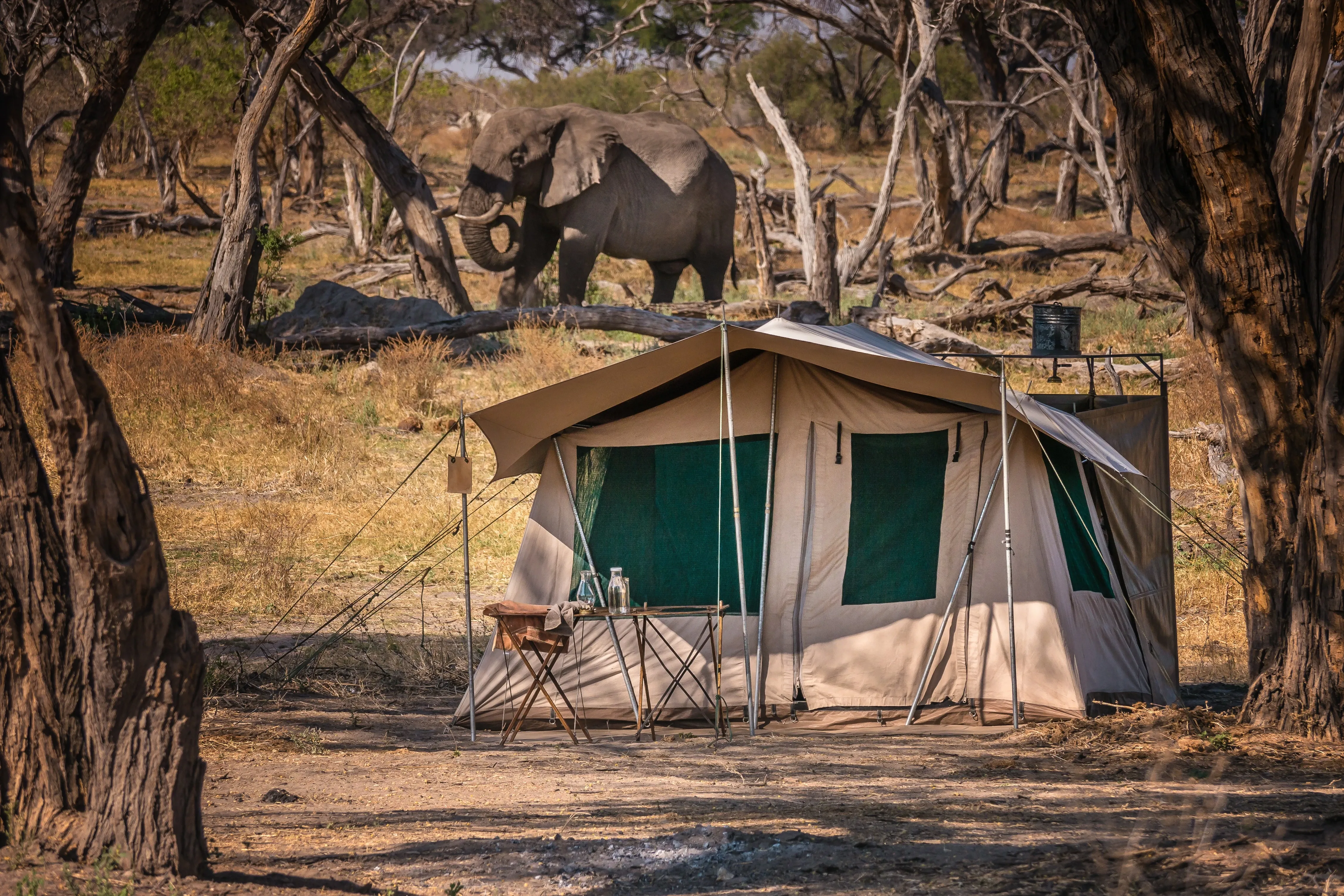
2) Unplug from the digital word
We encourage you to unplug from the digital world and open yourself to renewal, fostering a deeper understanding of the ecosystems that thrive in these untouched areas. Imagine choosing a wilderness location rich in wildlife and having the chance to witness for example a majestic bear foraging for food in an Alaskan river, watching a pack of wolves trotting across the steppes of Yellowstone National Park, or catching a fleeting glimpse of a puma in Patagonia —these signature encounters can be life-changing.
Imagine you’re observing elephants in the renowned Okavango Delta of Botswana, watching a sleeping pride of lions on a guided wilderness trail in Zambia, or enjoying the sight of soaring vultures in the Himalayas; these experiences create soul-stirring moments that linger long after you’ve returned to civilization.
3) Embrace yourself and nature
Camping in the wild fosters a sense of vulnerability, encouraging you to embrace your inquisitive nature. The dawn choir of birds greeting the day fills the air with a symphony of sound, reminding you of the abundance of life that exists in the wilderness.
This unique blend of adventure and tranquillity will leave you craving more time outdoors as you witness the profound beauty and intricacies of the natural world. Ultimately, wilderness camping is not just an escape; it’s an opportunity to discover, connect, and grow in ways that are truly rewarding.
Wilderness camping - Frequently Asked Questions (FAQ)
How can I start my wilderness camping adventure?
To kick off your wilderness camping adventure, begin by researching destinations that suit your interests and skill level. Gather your wilderness camping essentials, connect with local outdoor organizations, and consider joining a community of fellow adventurers.
Solo travel or group travel
As mentioned earlier, there are two options: You can experience the power of solitude or the excitement of a group trip. If you’re considering solo travel, the freedom to explore at your own pace is liberating. However, being well-prepared is essential, especially if you’re new to wilderness camping. Research your destination, familiarize yourself with navigation tools, and ensure you have the right wilderness camping gear for your safety.
Conversely, group travel offers shared experiences and camaraderie. Camping with friends, family, or like-minded adventurers enhances enjoyment, whether it’s setting up camp, cooking over an open fire, or sharing stories by the campfire. The bonds formed during these moments can last a lifetime.
Guided tours and wilderness trails
For those who prefer a structured experience, guided tours provide an excellent opportunity to explore the wilderness with the help of experienced leaders.
These tours often include access to beautiful wilderness trails and hiking trips that may be difficult to navigate alone. Guides not only ensure your safety but also enrich your experience with insights about the local flora, fauna, and geography.
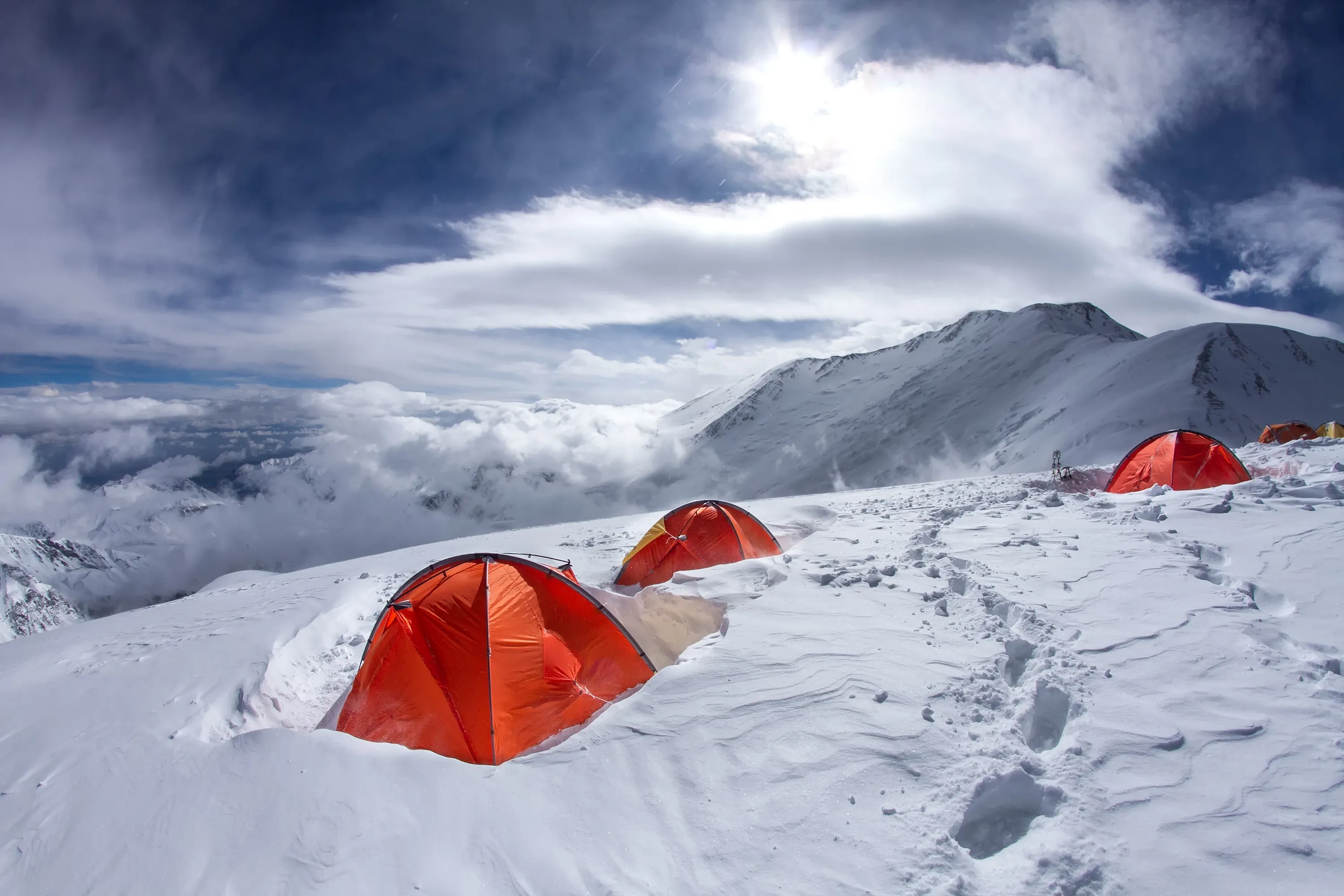
Survival camping guide and skill courses
Before embarking on your adventure, consider enrolling in survival skill courses. These courses are invaluable for learning essential skills such as building shelters, starting fires, and foraging for food.
A well-rounded survival camping guide can equip you with the knowledge needed to handle unexpected situations and enhance your confidence in the wild.
Leadership journeys
For those looking to develop their leadership skills, participating in leadership journeys through wilderness programs can be a transformative experience. These journeys often combine camping, outdoor challenges, and team-building activities designed to foster personal growth and leadership qualities. You'll learn to navigate the outdoors while also gaining insights into group dynamics and effective communication.
Whether you opt for solo exploration or a guided experience, the wilderness awaits you, offering endless opportunities for adventure, learning, and connection with nature.
»Do not go where the path may lead, go instead where there is no path and leave a trail!«
What should I be aware of when choosing a wilderness camp site?
Embarking on a wilderness camping adventure is an exhilarating experience, but selecting the right campsite can greatly influence your enjoyment and safety. Whether you're a seasoned camper or a novice explorer, these tips will help you make informed choices tailored to your needs and the unique characteristics of the area you wish to explore.
- #1 Research regulations: Always check the specific regulations of the area you wish to camp in. Some places allow wild camping, while others have designated campgrounds or require permits, especially in national parks.
- #2 Check for permits: In many national parks and protected areas, you may need to obtain a permit for camping. This helps manage foot traffic and preserve natural resources.
- #3 Understand wild camping rules: In some regions, wild camping is permitted but comes with specific rules regarding location, campfire usage, and waste disposal. Familiarize yourself with these regulations to minimize your environmental impact.
- #4 Consider accessibility: Choose a site based on your level of experience and physical fitness. Some campsites may require a challenging hike, while others are accessible by vehicle.
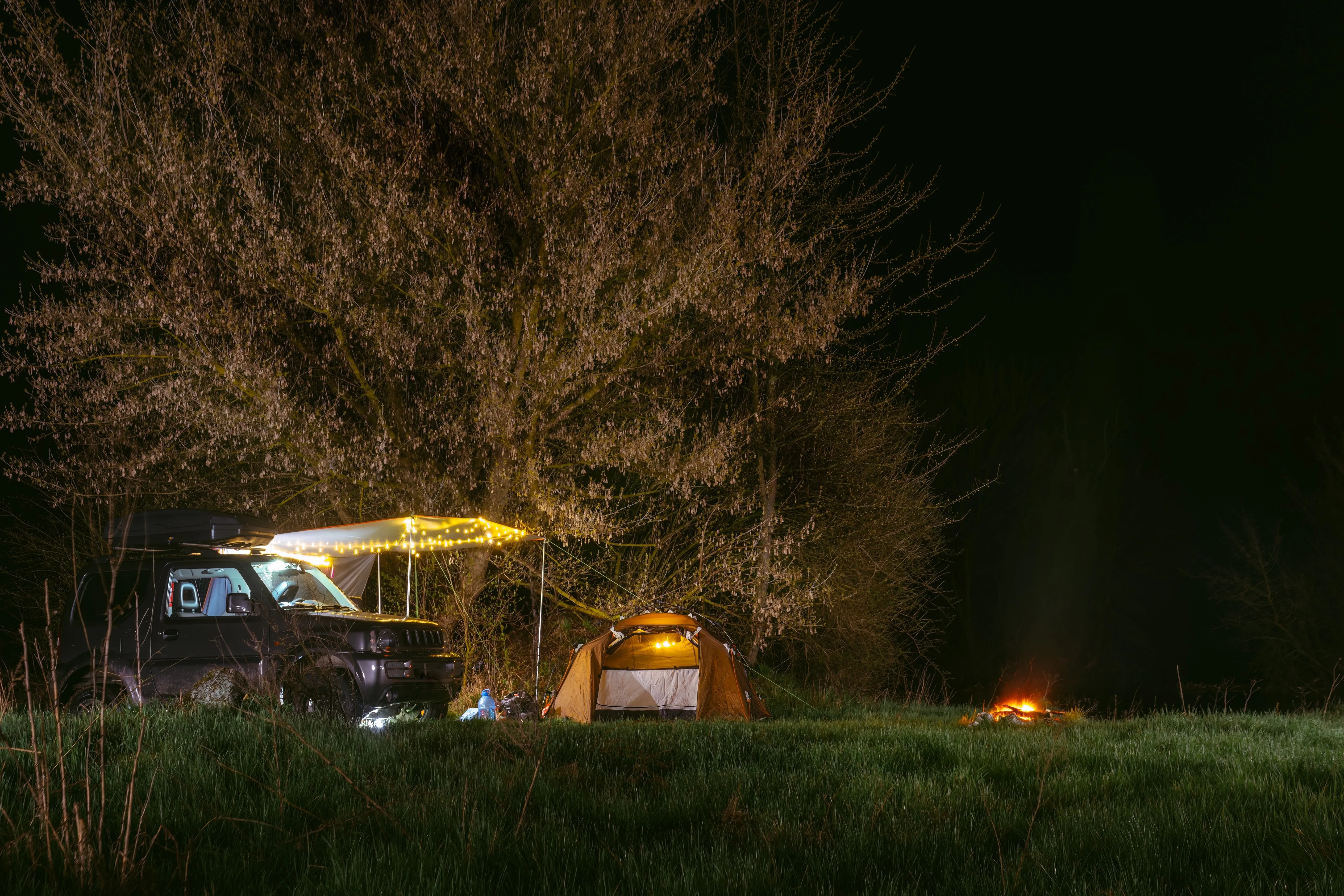
- #5 Wildlife safety: Be aware of local wildlife and take necessary precautions, such as storing food securely to prevent attracting animals. Familiarize yourself with the types of wildlife in the area, especially if you’re camping in regions known for bears or other large animals.
- #6 Leave no trace: Follow “Leave No Trace”-principles to preserve the natural environment. We leave nothing but footprints, take nothing but pictures and kill nothing but time. This includes packing out all trash, minimizing campfire impact, and respecting wildlife habitats.
- #7 Prepare for weather variability: Wilderness camping often involves unpredictable weather. Check forecasts and prepare for changing conditions by bringing appropriate gear, including waterproof tents and clothing.
- #8 Pack essential gear: Make sure to pack essential camping equipment, including a first aid kit, navigation tools, and sufficient food and water supplies. Being well-prepared can enhance your camping experience.
Where can I find some of the best wilderness camp sites?
Choosing the best wilderness campsite often depends on your preferences, weather conditions, budget, and level of experience, ensuring that your outdoor adventure is both enjoyable and fulfilling.
Yellowstone National Park, USA
- Location: Wyoming, Montana, and Idaho
- Highlights: Home to diverse wildlife, geothermal features, and stunning landscapes. Campsites like Slough Creek and Pebble Creek provide access to fishing, hiking, and the iconic Old Faithful geyser.
Taman Negara National Park, Malaysia
- Location: Peninsular Malaysia
- Highlights: One of the oldest rainforests in the world, Taman Negara boasts rich biodiversity, including rare species of flora and fauna. Campsites such as Sungai Relau and Kuala Tahan offer opportunities for jungle trekking, canopy walks, and night safaris.
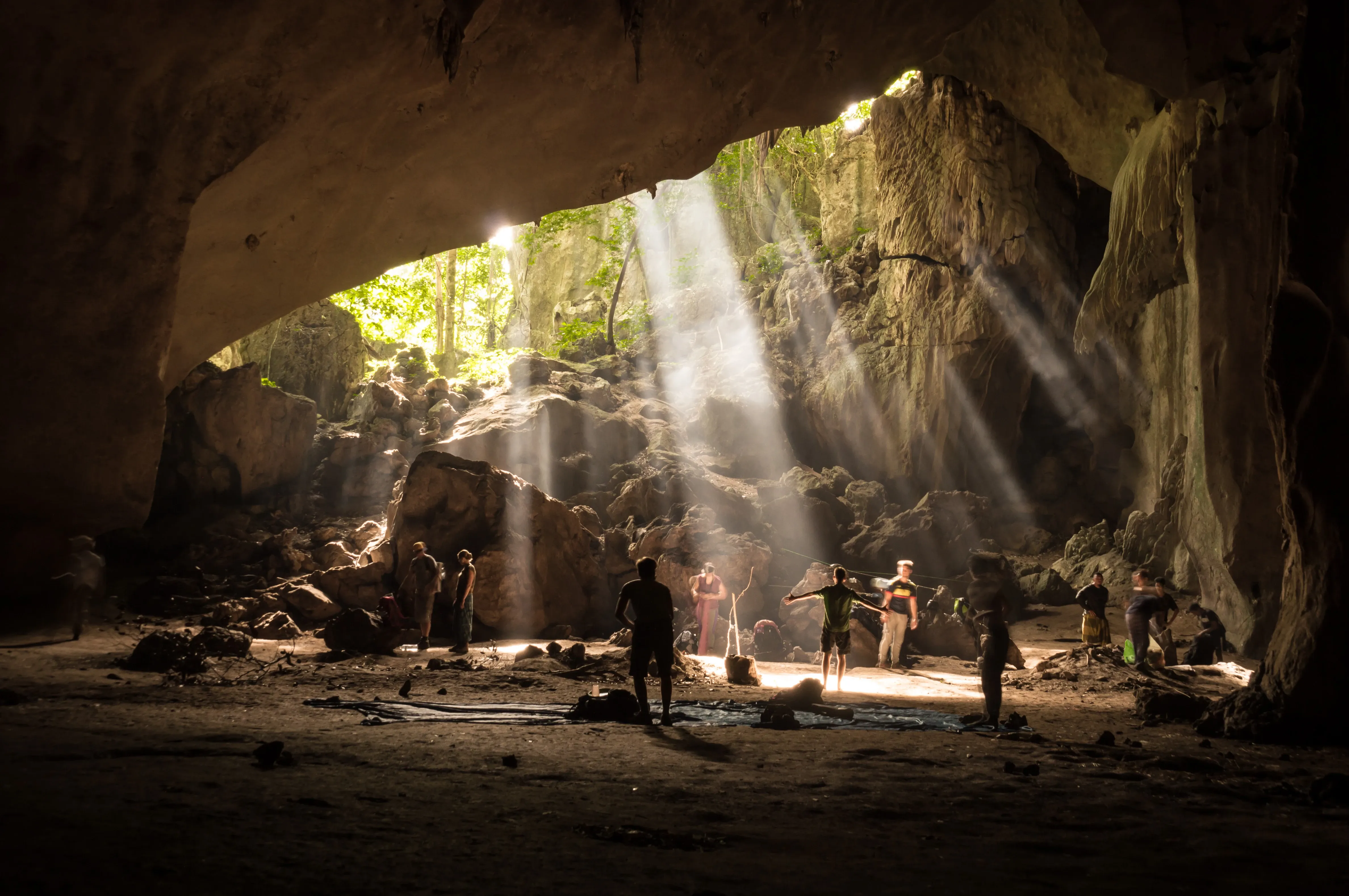
Banff National Park, Canada
- Location: Alberta
- Highlights: Nestled in the Canadian Rockies, Banff offers breath-taking scenery and abundant wildlife. Campsites such as Tunnel Mountain and Two Jack Lakeside provide incredible views and access to hiking trails.
Torres del Paine National Park, Chile
- Location: Patagonia
- Highlights: Known for its dramatic mountains, glaciers, and turquoise lakes, Torres del Paine offers various camping options. Camping Cuernos and Camping Italiano are popular among trekkers on the famous W Circuit.
Aoraki/Mount Cook National Park, New Zealand
- Location: South Island
- Highlights: Home to New Zealand's highest peak, this park features stunning alpine scenery. White Horse Hill Campground is an excellent base for hiking and enjoying breath-taking views.
Okavango Delta, Botswana
- Location: Northern Botswana
- Highlights: This UNESCO World Heritage site features a unique inland delta with abundant wildlife and stunning scenery. Guided wilderness experiences allow you to explore the Okavango Delta on foot or mokoro offering opportunities to see elephants, hippos, lions and diverse bird species up close.
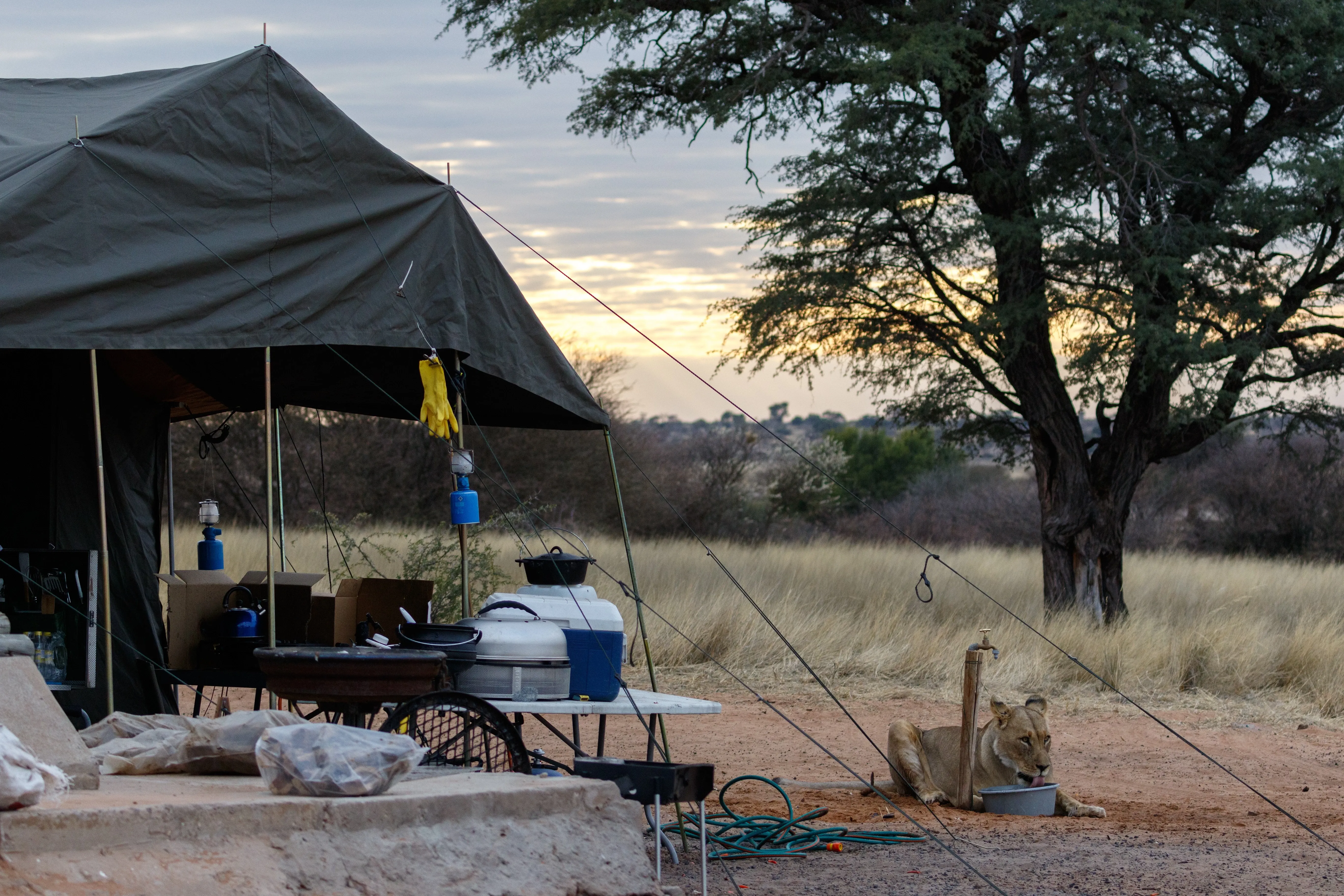
Kgalagadi Transfrontier Park, South Africa
- Location: Northern Cape, South Africa, and extending into Botswana
- Highlights: This unique park, which spans two countries, is known for its dramatic red dunes from the Kalahari desert and rich wildlife, including lions, leopards, and large herds of springbok. Campsites like Nossob and Kalahari Tented Camp provide excellent opportunities for game drives, birdwatching, and experiencing the beauty of the desert landscape.
Lapland, Finland
- Location: Northern Finland
- Highlights: For those seeking solitude and natural beauty, Lapland offers a chance to camp under the midnight sun or witness the Northern Lights. Oulanka National Park features remote campsites amid pristine wilderness.
Cinque Terre National Park, Italy
- Location: Liguria
- Highlights: While known for its charming coastal villages, the park also offers hiking trails and beautiful campsites overlooking the Mediterranean Sea.
How should I pack for a wilderness camping experience?
Preparing for a wilderness camping adventure requires careful planning and packing to ensure you have all the necessary wilderness camping essentials and must have tools. Here’s how to effectively pack for your trip into the wild, allowing you to fully immerse yourself in nature without the stress of forgetting crucial items.
#1 Choose the right pack
Select a durable backpack that suits the length of your trip. For short excursions, a daypack will suffice, while longer trips may require a larger backpack designed for nature camping gear. For multi-day trails we recommend a pack size of 30-40l.
#2 Wilderness camping essentials
Shelter: Include a quality tent that’s easy to set up and can withstand the weather conditions of your chosen location. Don't forget a sleeping bag suited to the climate and a mat for insulation and comfort.
Cooking gear: Pack a portable stove, fuel, lightweight cookware, utensils, and food supplies. Consider non-perishable items such as trails food that are easy to prepare and carry.
Clothing: Dress according to your location. Layers to adapt to changing weather conditions are highly recommended. Include moisture-wicking base layers, insulating layers, and a waterproof outer layer. Don’t forget extra socks, sturdy hiking boots, and a hat for sun protection.
#3 Adventure camping in the wild
Navigation tools: Always carry a map, compass, and GPS device to navigate safely through the wilderness. Familiarize yourself with the area beforehand. If you use any electronic devices make sure you downloaded the offline-maps and that you carry enough batteries or power banks. There are many solar power options available.
Safety gear: Bring a first aid kit, multi-tool (Leatherman or pocket knife), headlamp and flashlight, and potentially a whistle (especially in bear country or as a solo traveller). These items are crucial for addressing emergencies and ensuring your safety during your adventure.
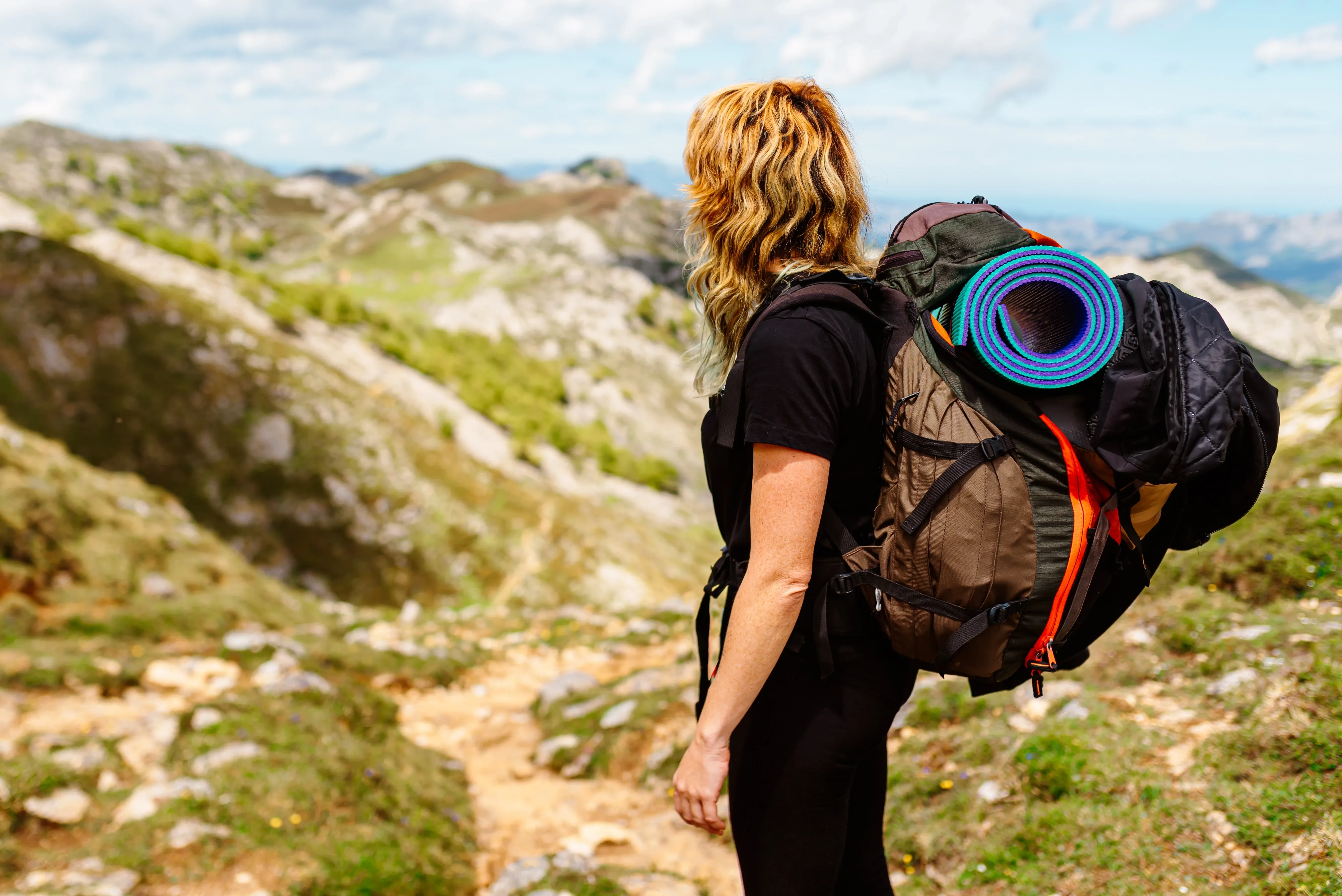
#4 Hydration and food
Water supply: Pack a hydration system or water bottles and consider a water filter or purification tablets to ensure safe drinking water during your stay. We recommend at least a 2l refillable-bottle per day.
Snacks and meals: Choose lightweight, high-energy snacks such as nuts, energy bars, and dried fruit. Plan your meals in advance to minimize food waste and make cooking easier.
#5 Wildlife considerations
If camping in areas with wildlife, ensure you have animal-proof containers or bags for food storage. Understanding local wildlife and their behaviours can help you stay safe. Please do not leave any food in your tent, due to safety reasons.
Depending on your location please also double check your sleeping bag or hiking boots for potential dangerous wildlife like snakes, scorpions or spiders.
#6 Leave no trace
Include trash bags for waste disposal to adhere to Leave No Trace principles. Properly packing out all waste helps preserve the natural beauty of the wilderness. Please don’t discard any bio-degradable products such as apple-cores or banana peels. They don’t belong into the wilderness and could cause damage to the delicate environment.
#7 Final packing tips
Test your gear: Before heading out, make sure to test all your gear, including the tent, stove, and sleeping bag, to ensure everything is functioning properly.
Practice packing: Load your backpack a few times before the trip to find the most comfortable way to pack your nature camping gear. Distribute weight evenly, keeping heavier items closer to your back for better balance.
By carefully packing your wilderness camping essentials and preparing for adventure camping in the wild, you’ll be well-equipped for a memorable experience in nature, fully embracing the beauty and excitement of the great outdoors.
Four reasons why you should embark on a wilderness camping experience:
- #1 Reconnect with nature: Wilderness camping allows you to immerse yourself in the beauty of the great outdoors. The fresh air, natural sounds, and stunning landscapes provide a perfect escape from the hustle and bustle of daily life, fostering a deeper appreciation for the environment.
- #2 Enhance mental well-being: Spending time in nature has been shown to reduce stress, improve mood, and enhance overall mental health. Disconnecting from technology and immersing yourself in a natural setting can lead to a sense of renewal and clarity, helping you recharge and gain perspective.
- #3 Develop survival skills: Wilderness camping provides an excellent opportunity to learn essential survival skills, such as navigation, fire-starting, shelter-building, and foraging. These skills not only enhance your confidence in outdoor settings but also promote self-sufficiency and resilience.
- #4 Foster connections: Whether you choose to go solo or camp with friends and family, wilderness camping can strengthen bonds and create lasting memories. Shared experiences in the wild—like cooking meals together, tackling challenges, or simply enjoying quiet moments—foster deeper connections and camaraderie.
These reasons highlight the enriching and transformative experience that wilderness camping offers, making it an adventure worth pursuing!
Sign up for the newsletter
By clicking on “Subscribe now” I will subscribe to the Conscious Explorer newsletter with all the information about mindful travel. Information on the success measurement included in the consent, the use of the shipping service provider MailChimp, logging of the registration and your rights of revocation can be found in our privacy policy.
